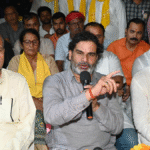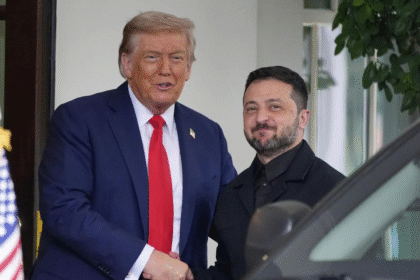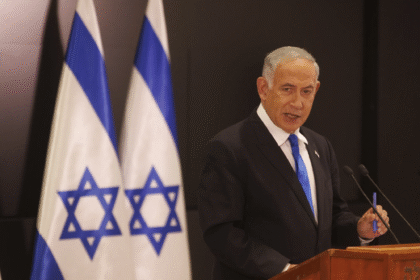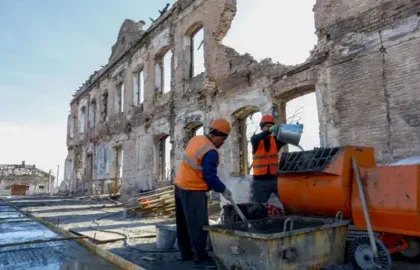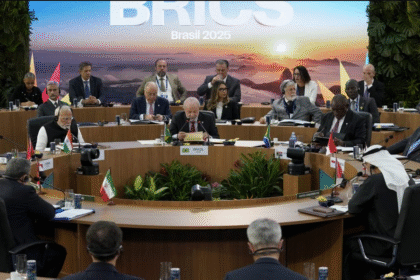Gaza Peace Summit 2025: India Reaffirms Balanced Stand on Israel-Palestine Conflict — 3 Key Points From New Delhi’s Statement
PM Modi had welcomed the agreement on the first phase the Gaza peace plan signed between Israel and Hamas
World leaders will gather for a historic Gaza summit in the Egyptian resort city of Sharm ElSheikh on Monday as Israeli hostages return home as part of the peace deal brokered by US President Donald Trump.
Co-chaired by Egyptian President Abdel Fattah al-Sisi and Trump, the gathering is being described as a critical milestone in efforts to end the two-year-long war in Gaza and usher in a new phase of regional peace.
Prime Minister Narendra Modi was also invited for the summit but will not be able attend on such a short notice. India has sent MoS Kirti Vardhan Singh as its special representative for the meeting.
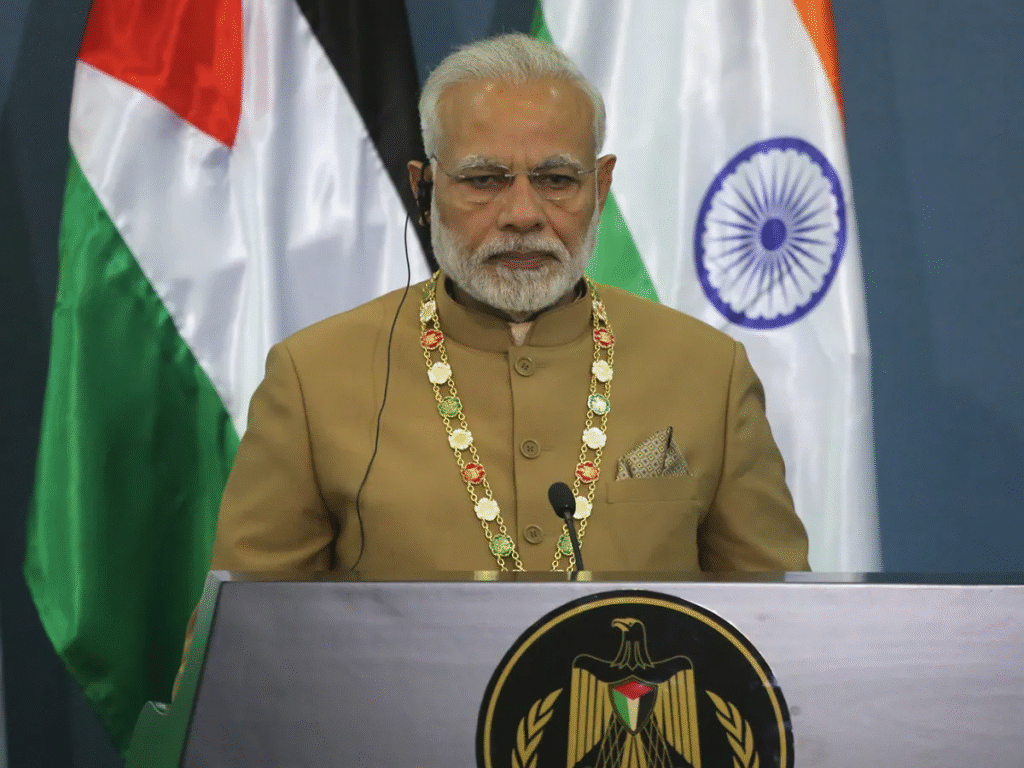
Despite being a close ally of Israel, India has always supported a negotiated two-state solution between Israel and Palestine.
Earlier, PM Modi had welcomed the agreement on the first phase the Gaza peace plan signed between Israel and Hamas.
In a social media post, Modi expressed hope that the release of hostages and enhanced humanitarian assistance to the people of Gaza will bring respite to them and pave the way for lasting peace. He added that this is also a reflection of the strong leadership of Israeli PM Benjamin Netanyahu.
India’s position on Gaza was recently made clear by MoS Singh in the monsoon session of Lok Sabha when he asked to give the Centre’s view on the diplomatic position adopted by the country amid the humanitarian crisis in the region.
The external affairs ministry said that India has always supported a negotiated two-state solution, towards establishment of a sovereign, independent and viable state of Palestine within secure and recognized borders, living side by side in peace with Israel.
“India also supports Palestine’s membership of the UN. India has strongly condemned the terror attacks on Israel on 7 October 2023 and also the loss of civilian lives in the ongoing Israel-Hamas conflict,” the government said.
It also expressed concerned at the security situation and had called for a ceasefire, release of all hostages and peaceful resolution of conflict through dialogue and diplomacy.
Notably, India was one of the first countries to recognise the state of Palestine in 1988 and has consistently supported its cause at the United Nations and other global forums. PM Modi became the first Indian PM to visit Israel in 2017 followed by a separate visit to Palestine in 2018, signalling India’s effort to maintain balanced ties with both sides.
According to MEA, India has also extended humanitarian assistance to the people of Palestine both bilaterally and through United Nations Relief and Works Agency (UNRWA).

“Since the beginning of the conflict, India has provided around 70 MT of humanitarian aid, including 16.5 MT of medicines and medical supplies in 2 tranches in October and November 2023. India has also sent 65 MT of medicines to UNRWA and Palestine Ministry of Health in October and November 2024,” the government had informed Lok Sabha.
India has also completed projects worth $26 million in Palestine over the last 5 years.
As world leaders convene for the Gaza Peace Summit 2025, the spotlight has once again turned to India’s diplomatic stance on the long-standing Israel-Palestine conflict. Amid global calls for an immediate ceasefire and humanitarian aid, India has maintained a balanced and principled approach, emphasizing peace, dialogue, and respect for international law.
The summit, hosted in Geneva, comes at a crucial time when renewed fighting in Gaza has left over 20,000 people displaced and triggered a new wave of international concern. Representatives from more than 60 countries, including the United States, Russia, the European Union, and several Arab nations, have gathered to discuss de-escalation measures and pathways toward a sustainable two-state solution.
India reiterated its long-standing commitment to the two-state solution, envisioning the peaceful coexistence of Israel and Palestine as sovereign nations within secure and recognized borders.
At the summit, India’s delegation, led by External Affairs Minister Dr. S. Jaishankar, underscored that the only viable path to lasting peace lies in direct negotiations between both sides, free from violence and external coercion.

“India firmly believes that peace in the Middle East must be built on mutual recognition, security, and dignity for both Israelis and Palestinians,” Jaishankar said, emphasizing that New Delhi continues to support all diplomatic efforts that aim to revive the peace process under the UN Charter and international law.
Over the years, India has evolved from a pro-Palestinian position to a more strategically balanced foreign policy, strengthening ties with Israel while maintaining its historic support for Palestine’s statehood.
New Delhi’s current approach reflects a careful calibration:
India continues to engage with Israel on defense, technology, and agriculture partnerships worth over $10 billion annually.
Simultaneously, India provides humanitarian assistance and development aid to the Palestinian territories, contributing to projects in healthcare, education, and digital governance.
This dual-track diplomacy was visible at the summit, where Indian representatives called for both the protection of civilian lives and the elimination of terrorism. “Terror and civilian suffering cannot coexist in any just solution,” an Indian official remarked, highlighting the country’s stance that condemns violence from all sides.
As humanitarian conditions in Gaza deteriorate, India has joined calls for uninterrupted aid corridors and medical support for affected civilians. Recently, the Indian government dispatched 40 tonnes of medical supplies and food aid to Gaza through Egypt’s Rafah crossing, signaling its commitment to humanitarian principles.
At the Geneva summit, India proposed the creation of a UN-led humanitarian coalition, where neutral countries could coordinate relief operations without political interference. The proposal rece
India’s nuanced position reflects its desire to maintain strategic autonomy in global affairs. While the U.S. and its allies often expect stronger condemnation of Hamas, India continues to emphasize terrorism as a universal threat but avoids taking sides in ways that jeopardize its relationships in the Middle East.
This pragmatic approach aligns with India’s broader foreign policy principle of “Vasudhaiva Kutumbakam” — the world is one family. By engaging constructively with both Israel and Palestine, India positions itself as a potential mediator capable of bridging divides in an increasingly polarized world.
India’s statement received praise from several nations, particularly those in the Non-Aligned Movement (NAM), for maintaining moral clarity amid global tensions. Western diplomats, too, acknowledged India’s growing role as a responsible global voice, especially given its leadership in the G20 and Global South dialogues.
Palestinian representatives expressed appreciation for India’s consistent call for restraint and peaceful dialogue, while Israel continues to value its partnership with New Delhi in areas of innovation, defense, and intelligence cooperation.
Read Also : 3 Injured After Losing Balance at Bardhaman Railway Station — Panic Erupts Amid Rush Hour Chaos




